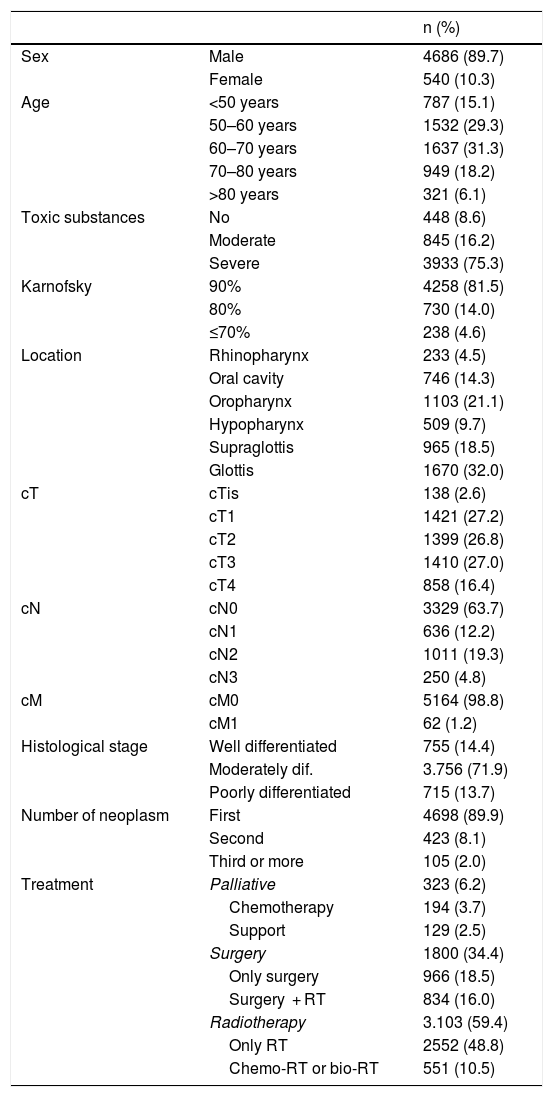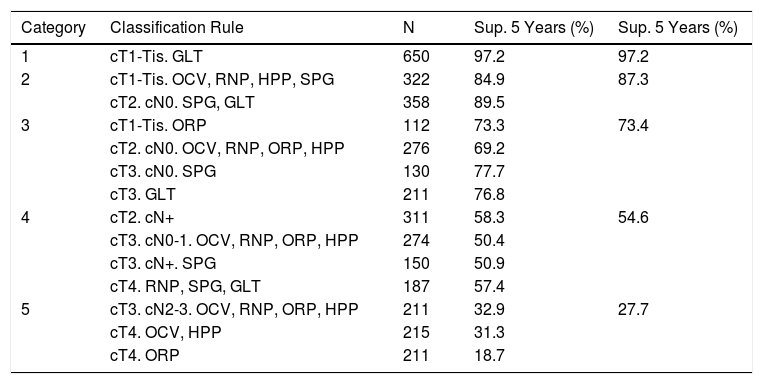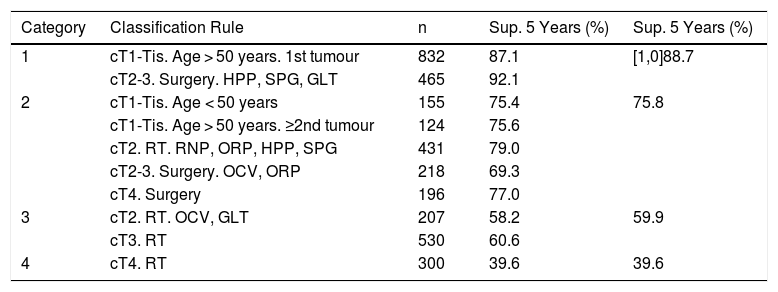Recursive partitioning analysis (RPA) is a technique that allows prognostic classification in oncological patients. The aim of the present study is to analyse by means of an RPA a cohort of patients with squamous carcinomas of the head and neck (SCHN).
Methods5226 SCHN were retrospectively analysed with an RPA, considering the specific survival and local control of the disease as dependent variables. A cohort of patients was used for the creation of the classification model, and another cohort was used to carry out its internal validation.
ResultsConsidering specific survival as a dependent variable we obtained a classification tree with 14 terminal nodes that were grouped into 5 categories, including as partition variables the local and regional extent of the tumour, and the location of the tumour. When considering the local control of the disease as a dependent variable we obtained a classification tree with 10 terminal nodes that were grouped into 4 categories, including as partition variables the local extension and location of the tumour, the type of treatment performed, the age of the patient, and if it was a first tumour or a subsequent neoplasm. The validation study confirmed the prognostic capacity of the models developed with the RPA. One of the advantages of the RPA is that it allows the identification of groups of patients with specific behaviour.
ConclusionRPA is shown to be an effective technique for the prognostic classification of patients with a SCHN.
El análisis de partición recursiva (APR) es una técnica que permite la clasificación pronóstica en pacientes oncológicos. El objetivo del presente estudio es analizar mediante un APR una cohorte de pacientes con carcinomas escamosos de cabeza y cuello (CECC).
MétodosSe analizaron de forma retrospectiva 5226 CECC con un APR considerando la supervivencia específica y el control local de la enfermedad como variables dependientes. Se utilizó una cohorte de pacientes para la creación del modelo de clasificación, y otra cohorte para llevar a cabo la validación interna del modelo.
ResultadosAl considerar como variable dependiente la supervivencia específica se obtuvo un árbol de clasificación con 14 nodos terminales que se agruparon en 5 categorías, incluyendo como variables de partición la extensión local y regional del tumour, y la localización del tumour. Al considerar el control local de la enfermedad como variable dependiente se obtuvo un árbol de clasificación con 10 nodos terminales que se agruparon en 4 categorías, incluyendo como variables de partición la extensión local del tumour y su localización, el tipo de tratamiento realizado, la edad del paciente, y si se trataba de un primer tumour o una neoplasia sucesiva. El estudio de validación confirmó la capacidad pronóstica de los modelos desarrollados con el APR. Una de las ventajas del APR es que permite la identificación de grupos de pacientes con un comportamiento singular.
ConclusiónEl APR se muestra como una técnica eficaz para la clasificación pronóstica de los pacientes con un CECC.












